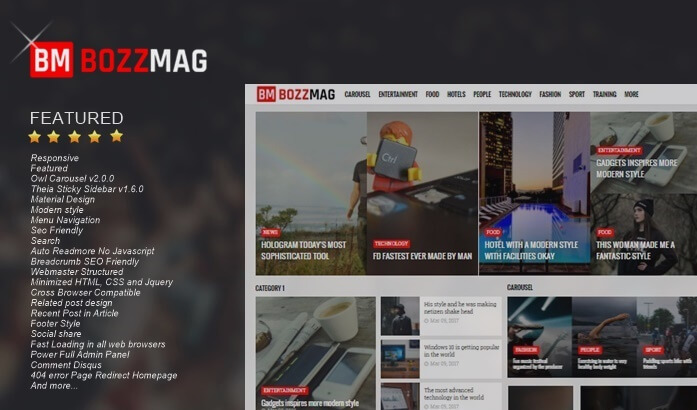HTML5 Seo Friendly and Valid Meta Tags
HTML Tag Seo Friendly and Valid HTML5 - This time I will answer the question that was asked by blogger friends about how to fill in the xxxxx code that I added to the templates I shared.
Maybe some bloggers still don't understand the meta tag, so here I will explain a little about the meta tag in the blogger template.
Meta tags are one of the optimizations on blogs so that the blogs and articles we post have a clear identity. So that blogs will be easier to track search robots like in Google, Bing, or other search tools and will be easier to sort in SERP (search engine results page).
The meta tag function basically consists of several important elements including:
Meta tag description
Meta tag description is used to provide an overview of the contents of your blog page. The size is recommended no more than 200 characters. And make sure that this description can be:
Keyword Meta tags are very important because they determine what keywords can find blog pages on search engines.
The main purpose of using robots meta tags is to determine which blog pages will be indexed by searches and which blog pages will not be searched. This tag is very useful especially if a blog uses frames for navigation.
HTML5 Seo Friendly and Valid Meta Tags
Here I will share examples of HTML5 Seo Friendly and Valid meta tags that I use on the latest version of the Simplify 2 template as well as the answers of bloggers about how to remove blog titles when sharing articles to social media. The code below can be installed under the opening <head> or before </head> tag
Information
* = Delete if not in use
Re-adjust the xxxxx code in your template with the placement of the meta tag above or simply replace the existing meta tag with this meta tag. So about HTML5 Seo Friendly and Valid Meta Tags. Hopefully helpful, and thank you.
Maybe some bloggers still don't understand the meta tag, so here I will explain a little about the meta tag in the blogger template.
Meta tags are one of the optimizations on blogs so that the blogs and articles we post have a clear identity. So that blogs will be easier to track search robots like in Google, Bing, or other search tools and will be easier to sort in SERP (search engine results page).
The meta tag function basically consists of several important elements including:
Meta tag description
Meta tag description is used to provide an overview of the contents of your blog page. The size is recommended no more than 200 characters. And make sure that this description can be:
<meta content='Write a description here' name='description'/>Keyword Meta tags are very important because they determine what keywords can find blog pages on search engines.
<meta content="keyword 1, keyword 2, keyword 3,... name="keywords"/>The main purpose of using robots meta tags is to determine which blog pages will be indexed by searches and which blog pages will not be searched. This tag is very useful especially if a blog uses frames for navigation.
<meta content="index follow" name="robots"/><meta content='Write a description here' name='description'/>
<meta content='keyword 1, keyword 2, keyword 3 ...' name='keywords'/>
<meta content='index, follow' name='robots'/>HTML5 Seo Friendly and Valid Meta Tags
Here I will share examples of HTML5 Seo Friendly and Valid meta tags that I use on the latest version of the Simplify 2 template as well as the answers of bloggers about how to remove blog titles when sharing articles to social media. The code below can be installed under the opening <head> or before </head> tag
<!-- [ Meta Tag SEO ] -->
<meta charset='utf-8'/>
<meta content='width=device-width, initial-scale=1' name='viewport'/>
<meta content='blogger' name='generator'/>
<meta content='text/html; charset=UTF-8' http-equiv='Content-Type'/>
<link href='http://www.blogger.com/openid-server.g' rel='openid.server'/>
<link expr:href='data:blog.homepageUrl' rel='openid.delegate'/>
<link expr:href='data:blog.url' rel='canonical'/>
<b:if cond='data:blog.pageType == "index"'>
<title><data:blog.pageTitle/></title>
<b:else/>
<b:if cond='data:blog.pageType != "error_page"'>
<title><data:blog.pageName/> - <data:blog.title/></title>
</b:if></b:if>
<b:if cond='data:blog.pageType == "error_page"'>
<title>Page Not Found - <data:blog.title/></title>
</b:if>
<b:if cond='data:blog.pageType == "archive"'>
<meta content='noindex' name='robots'/>
</b:if>
<b:if cond='data:blog.searchLabel'>
<meta content='noindex,nofollow' name='robots'/>
</b:if>
<b:if cond='data:blog.isMobile'>
<meta content='noindex,nofollow' name='robots'/>
</b:if>
<b:if cond='data:blog.pageType != "error_page"'>
<meta expr:content='data:blog.metaDescription' name='description'/>
<script type='application/ld+json'>{ "@context": "http://schema.org", "@type": "WebSite", "url": "<data:blog.homepageUrl/>", "potentialAction": { "@type": "SearchAction", "target": "<data:blog.homepageUrl/>?q={search_term}", "query-input": "required name=search_term" } }</script>
<b:if cond='data:blog.homepageUrl != data:blog.url'>
<meta expr:content='data:blog.pageName + ", " + data:blog.pageTitle + ", " + data:blog.title' name='keywords'/>
</b:if></b:if>
<b:if cond='data:blog.url == data:blog.homepageUrl'>
<meta content='DESCRIPTION OF BLOG' name='keywords'/></b:if>
<link expr:href='data:blog.homepageUrl + "feeds/posts/default"' expr:title='data:blog.title + " - Atom"' rel='alternate' type='application/atom+xml'/>
<link expr:href='data:blog.homepageUrl + "feeds/posts/default?alt=rss"' expr:title='data:blog.title + " - RSS"' rel='alternate' type='application/rss+xml'/>
<link expr:href='"http://www.blogger.com/feeds/" + data:blog.blogId + "/posts/default"' expr:title='data:blog.title + " - Atom"' rel='alternate' type='application/atom+xml'/>
<b:if cond='data:blog.pageType == "item"'>
<b:if cond='data:blog.postImageThumbnailUrl'>
<link expr:href='data:blog.postImageThumbnailUrl' rel='image_src'/>
</b:if></b:if>
<link expr:href='data:blog.url' hreflang='x-default' rel='alternate'/>
<link href='/favicon.ico' rel='icon' type='image/x-icon'/>
<link href='https://plus.google.com/USER-GOOGLE-PLUS/posts' rel='publisher'/>
<link href='https://plus.google.com/USER-GOOGLE-PLUS/about' rel='author'/>
<link href='https://plus.google.com/USER-GOOGLE-PLUS' rel='me'/>
<meta content='CODE-VALIDASI-GOOGLE-WEBMASTER' name='google-site-verification'/>
<meta content='CODE-VALIDASI-BING-WEBMASTER' name='msvalidate.01'/>
<meta content='English' name='geo.placename'/>
<meta content='ADMIN-NAME' name='Author'/>
<meta content='general' name='rating'/>
<meta content='eg' name='geo.country'/>
<!-- [ Social Media Meta Tag ] -->
<b:if cond='data:blog.pageType == "item"'>
<meta expr:content='data:blog.pageName' property='og:title'/>
<meta expr:content='data:blog.canonicalUrl' property='og:url'/>
<meta content='article' property='og:type'/>
</b:if>
<meta expr:content='data:blog.title' property='og:site_name'/>
<b:if cond='data:blog.url == data:blog.homepageUrl'>
<meta expr:content='data:blog.metaDescription' name='description'/>
<meta expr:content='data:blog.title' property='og:title'/>
<meta content='website' property='og:type'/>
<b:if cond='data:blog.metaDescription'>
<meta expr:content='data:blog.metaDescription' property='og:description'/>
<b:else/>
<meta expr:content='"Silakan kunjungi " + data:blog.pageTitle + " Untuk membaca postingan menarik."' property='og:description'/>
</b:if>
</b:if>
<b:if cond='data:blog.pageType == "item"'>
<meta expr:content='data:blog.metaDescription' property='og:description'/>
</b:if>
<b:if cond='data:blog.postImageUrl'>
<meta expr:content='data:blog.postImageUrl' property='og:image'/>
<b:else/>
<b:if cond='data:blog.postImageThumbnailUrl'>
<meta expr:content='data:blog.postThumbnailUrl' property='og:image'/>
<b:else/>
<meta content='https://blogger.googleusercontent.com/img/b/R29vZ2xl/AVvXsEhENCs2xM-LaW4BzwoJW9R21ZglEQ3-aKfrNo7AZIMrJ1gHeFOH80JqGyloRaaBsWgKJA6DNS15F3dvoBXHZ3WcU7u3FxMArd1z1HwJTltm9c1OEN_l3BKqcIpqteoVFT87Y-gnahgVB6lN/s1600/Arlina+Logo.png' property='og:image'/>
</b:if>
</b:if>
<meta content='https://www.facebook.com/PROFIL-FACEBOOK' property='article:author'/>
<meta content='https://www.facebook.com/FAN-PAGE-FACEBOOK' property='article:publisher'/>
<meta content='CODE-APPLICATION-FACEBOOK' property='fb:app_id'/>
<meta content='CODE-ADMIN-FACEBOOK' property='fb:admins'/>
<meta content='en_US' property='og:locale'/>
<meta content='en_GB' property='og:locale:alternate'/>
<meta content='id_ID' property='og:locale:alternate'/>
<meta content='summary' name='twitter:card'/>
<meta expr:content='data:blog.pageTitle' name='twitter:title'/>
<meta content='USER-TWITTER' name='twitter:site'/>
<meta content='USER-TWITTER' name='twitter:creator'/>
<meta content='summary_large_image' name='twitter:card'/>Information
* = Delete if not in use
Re-adjust the xxxxx code in your template with the placement of the meta tag above or simply replace the existing meta tag with this meta tag. So about HTML5 Seo Friendly and Valid Meta Tags. Hopefully helpful, and thank you.







